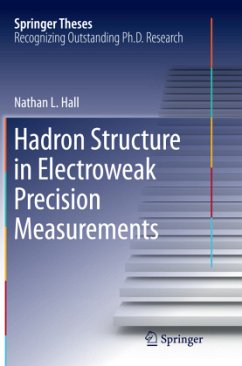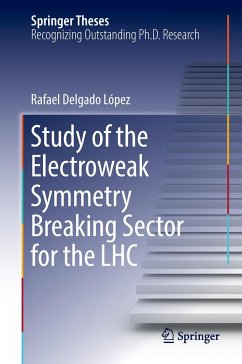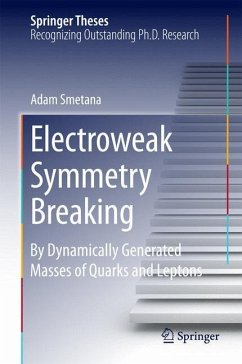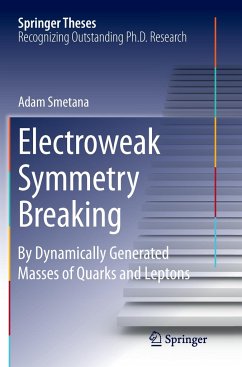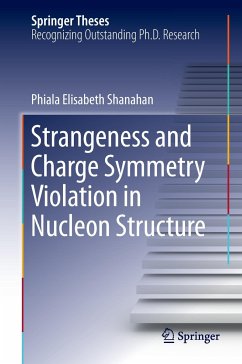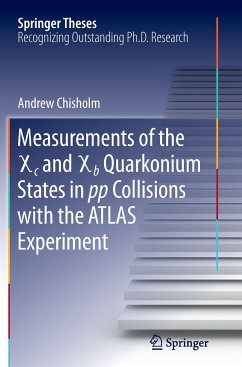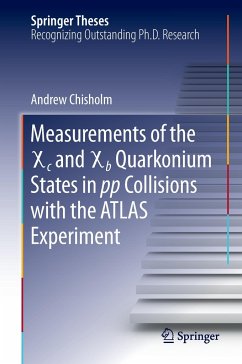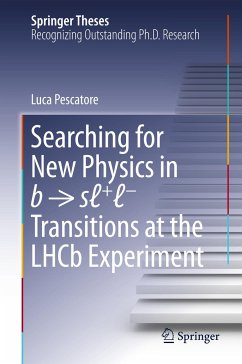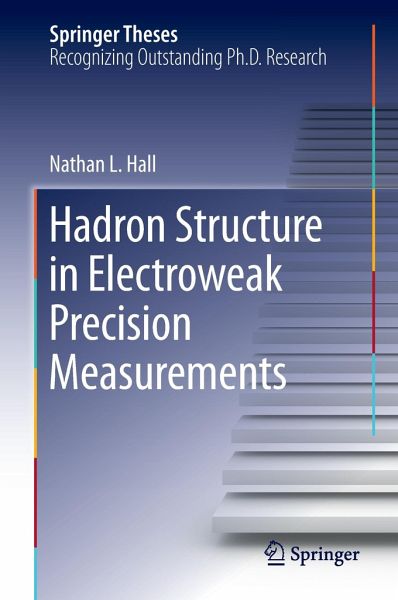
Hadron Structure in Electroweak Precision Measurements
Versandkostenfrei!
Versandfertig in 6-10 Tagen
76,99 €
inkl. MwSt.
Weitere Ausgaben:

PAYBACK Punkte
38 °P sammeln!
This thesis examines the GammaZ box contribution to the weak charge of the proton. Here, by combining recent parity-violating electron-deuteron scattering data with our current understanding of parton distribution functions, the author shows that one can limit this model dependence. The resulting construction is a robust model of the GammaGamma and GammaZ structure functions that can also be used to study a variety of low-energy phenomena. Two such cases are discussed in this work, namely, the nucleon's electromagnetic polarizabilities and quark-hadron duality.By using phenomenological informa...
This thesis examines the GammaZ box contribution to the weak charge of the proton. Here, by combining recent parity-violating electron-deuteron scattering data with our current understanding of parton distribution functions, the author shows that one can limit this model dependence. The resulting construction is a robust model of the GammaGamma and GammaZ structure functions that can also be used to study a variety of low-energy phenomena. Two such cases are discussed in this work, namely, the nucleon's electromagnetic polarizabilities and quark-hadron duality.
By using phenomenological information to constrain the input structure functions, this important but previously poorly understood radiative correction is determined at the kinematics of the parity-violating experiment, QWEAK, to a degree of precision more than twice that of the previous best estimate.
A detailed investigation into available parametrizations of the electromagnetic and interference cross-sections indicates that earlier analyses suffered from the inability to correctly quantify their model dependence.
By using phenomenological information to constrain the input structure functions, this important but previously poorly understood radiative correction is determined at the kinematics of the parity-violating experiment, QWEAK, to a degree of precision more than twice that of the previous best estimate.
A detailed investigation into available parametrizations of the electromagnetic and interference cross-sections indicates that earlier analyses suffered from the inability to correctly quantify their model dependence.





